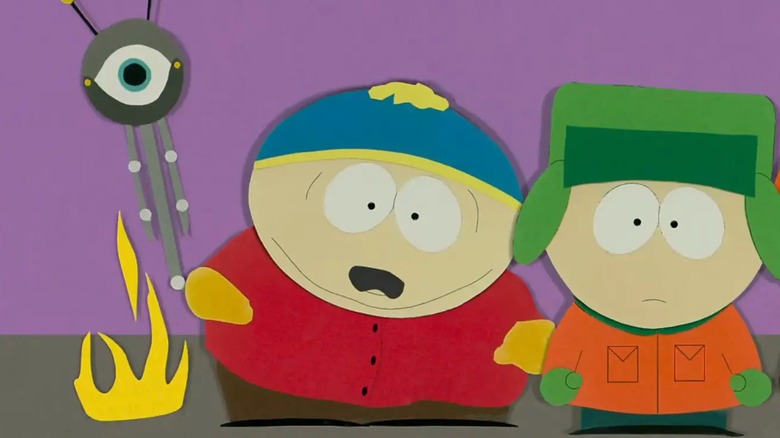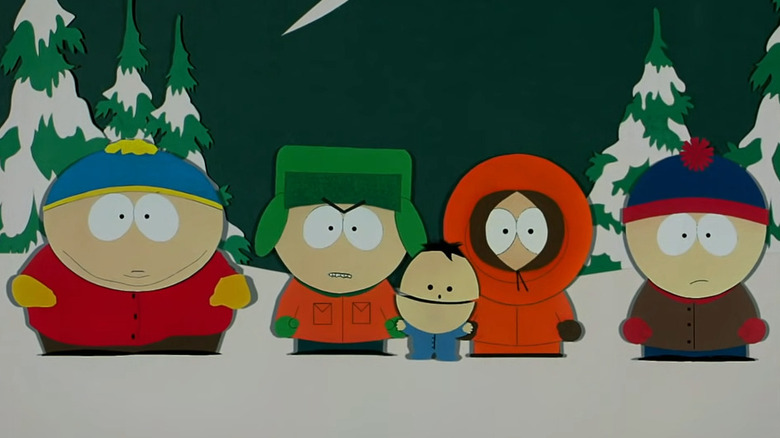South Park's Pilot Episode Made Members Of The Focus Group Cry
For context, consider this: If you were going to make a room full of strangers cry, you'd probably have to kidnap them first, or at least take them hostage at, like, a bank or something.
But then again, you're not Trey Parker or Matt Stone. Probably. If you are, then you'll remember that time when you accidentally brought a handful of adult human beings to tears with the pilot episode of "South Park."
It was the mid-'90s. With its countless channels and endless time to fill, cable television was the sort of vacuum that nature abhors. Executives at fresh new networks were looking for something to set them apart, and Comedy Central was dipping its toe in the water with a new potential acquisition — the animated serialized misadventures of a group of Colorado youths. The pilot episode of this series focused on one of the children getting an alien transmitter implanted in his rectal cavity. The moneymen, needless to say, were skeptical.
The pilot was shown to a focus group in an attempt to gauge interest. The result, according to "South Park" producer Brian Graden, was almost iconically bad: "We made three people cry [...] I've never seen a worse focus group, and thought, 'Well, this show isn't going to be the next year of my life.'"
Something about the South Park pilot didn't sit right with the focus group
The account of the trial-by-fire that "South Park's" pilot episode went through — as told in an oral history on the subject published by Entertainment Weekly — almost reads like satire in retrospect. Former Comedy Central president Doug Herzog recalled an experience where he "bolted up in bed just nights before" the first episode aired "in cold sweat, I swear to God. I was like, 'Wait, can I get arrested for this? Is this legal?'"
"South Park," it turned out, was legal, or at least permissible, despite vocal objections from parents and the media. More than that, it's since become the flagship program for a once-struggling network, premiering its 26th season in February and securing a better-part-of-a-billion-dollar deal with Trey Parker and Matt Stone to keep the series on the air through season 30. Success, they say, is the best revenge, and with more than 300 episodes under their belts, it's safe to say that Parker and Stone have given that focus group something to cry about.

